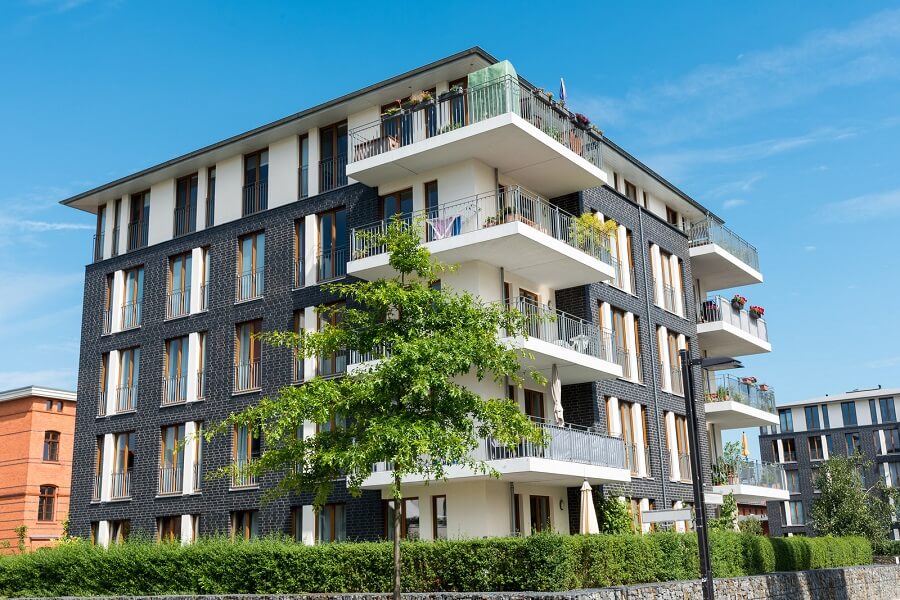Finding a place to call home can be a difficult task, especially when you come face to face with the soaring costs of apartments. The dream of a cozy, affordable abode often seems to slip further out of reach. Factors that contribute to the ever-rising prices of apartments. So, fasten your seatbelts as we navigate through the intricacies of the real estate market and unravel the mysteries behind why apartments are becoming increasingly expensive.
The Demand-Supply Conundrum
One of the primary drivers of high apartment prices is the age-old economic principle of supply and demand. As urbanization continues to grow and more people flock to cities in search of opportunities, the demand for housing skyrockets. Unfortunately, the supply of available apartments often struggles to keep up with this surging demand. The result? Prices shoot up as landlords capitalize on the scarcity of available units.
Location, Location, Location
The famous real estate mantra holds true: location matters. Apartments in prime, sought-after neighborhoods tend to come with premium price tags. The allure of living near job centers, quality schools, and entertainment hubs drives up demand in these areas, further exacerbating the cost issue.
Inflation’s Role
Inflation is another significant player in the expensive apartment game. As the cost of goods and services steadily rises, landlords need to increase rents to maintain their profit margins and cover rising operational expenses, such as property maintenance and taxes.
Low-Interest Rates
Surprisingly, low-interest rates, often seen as a boon for homebuyers, can also lead to higher apartment prices. When mortgage rates are low, more people opt to rent instead of buying homes, increasing the competition for rental properties and, consequently, driving up rents.
Zoning Laws and Regulations
Local zoning laws and regulations play a pivotal role in determining the supply of apartments. Stringent zoning laws can limit new construction, making it challenging for developers to meet the growing demand. This, in turn, causes prices to skyrocket in areas where new development is restricted.
Rent Control
In some cities, rent control measures are in place to protect tenants from excessive rent increases. However, these regulations can have unintended consequences, such as discouraging landlords from maintaining or investing in their properties.
Property Taxes
Property taxes can significantly impact apartment prices. When municipalities raise property taxes, landlords may raise rents to offset the increased costs.
The Rise of Luxury Apartments
Modern apartments often come loaded with luxurious amenities, from rooftop pools to state-of-the-art fitness centers. While these amenities provide an elevated living experience, they also contribute to higher rents. Landlords must recoup the costs of these features, passing them on to tenants in the form of increased rent.
Construction Costs
1. Material Costs
The price of construction materials, such as steel and lumber, can fluctuate due to market conditions and supply chain disruptions, impacting the cost of building new apartments.
2. Labor Costs
Skilled labor is essential for constructing quality apartments. When labor costs rise, so do the overall expenses associated with building and maintaining apartments.
FAQs – Why Are Apartments So Expensive
Are apartments more expensive than houses?
It depends on various factors like location, size, and demand. In many urban areas, apartments tend to be more expensive due to higher demand and limited space.
How can I save on apartment costs?
Consider exploring neighborhoods with lower rent prices, sharing an apartment with roommates, or negotiating your rent when renewing your lease.
What role do amenities play in apartment pricing?
Apartments with more amenities, such as fitness centers or swimming pools, often come with higher monthly rents. Evaluate whether these amenities are worth the extra cost to you.
Does the age of an apartment building affect its price?
Older buildings may have lower rents due to less modern amenities, but they can also have higher maintenance costs. Newer apartments may offer more conveniences but at a higher price.
Are there government programs to help with apartment costs?
Yes, some governments offer housing assistance programs for low-income individuals and families. Research programs in your area to see if you qualify.
Can I negotiate rent prices with my landlord?
Yes, it’s possible to negotiate rent prices, especially when renewing your lease—research comparable rental rates in your area to support your negotiation.
Is buying a house a more affordable option than renting an apartment?
The affordability of buying versus renting essentially depends on individual circumstances and the local housing market. In some areas, buying a house may be more cost-effective in the long run, while renting might be the better choice in others.
How can I find affordable apartments in a competitive market?
To find affordable apartments in a competitive market, consider expanding your search to less trendy neighborhoods, negotiate with landlords for better terms, and look for rental incentives or discounts.
Do rent control laws impact apartment prices?
Rent control laws can have both positive and negative effects on apartment prices. While they can provide stability for tenants, they may discourage property investment and reduce the overall supply of apartments, potentially leading to higher prices in the long term.
What can be done to address the affordable housing crisis?
Addressing the affordable housing crisis requires a multi-pronged approach, including government intervention through subsidies and incentives for affordable housing development, relaxing zoning regulations, and encouraging innovative housing solutions.
Are there any tax benefits to renting an apartment instead of buying a home?
In many cases, homeowners enjoy tax benefits such as mortgage interest deductions and property tax deductions, which renters do not. However, renting offers the flexibility of not being responsible for property maintenance and repair costs.
Conclusion
The high cost of apartments can be attributed to a multitude of factors, including supply and demand dynamics, economic forces like inflation and low-interest rates, zoning laws, the allure of prime locations, and luxurious amenities, and the changing preferences brought about by the pandemic. While the road to affordable housing may seem steep, understanding these factors can help individuals navigate the complex housing market more effectively.

